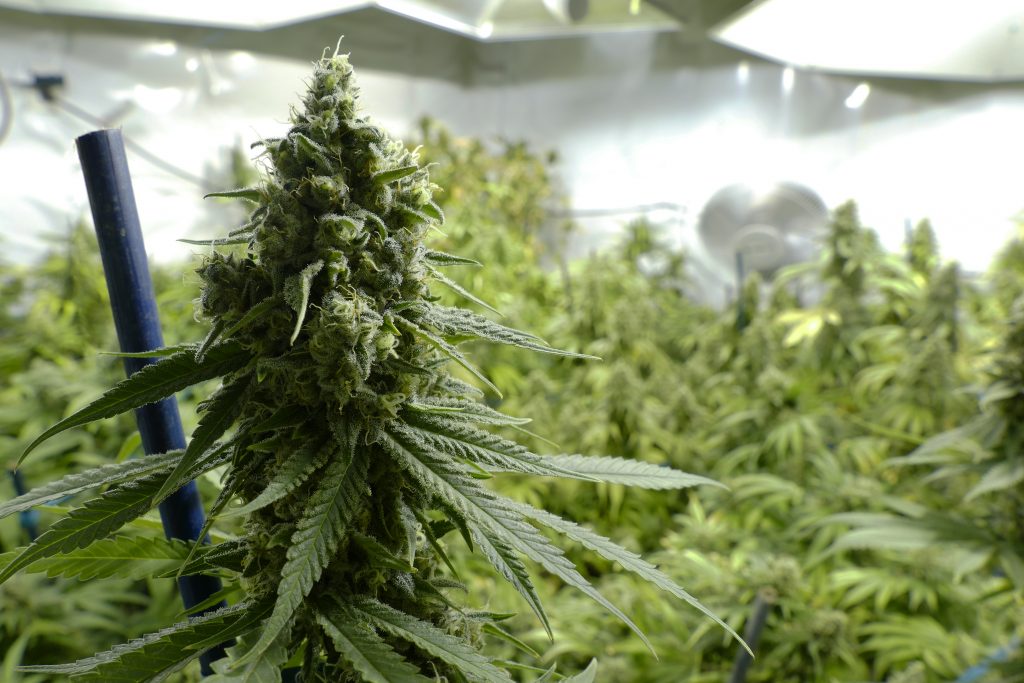
Cannabis legalization presents challenges new and old for employers
November 8, 2018 | By Diane Laranja
 Effective October 17, 2018, recreational cannabis became legal in Canada. It is not surprising many employers fear the cognitive and psychomotor effects its use will present in the workplace.
Effective October 17, 2018, recreational cannabis became legal in Canada. It is not surprising many employers fear the cognitive and psychomotor effects its use will present in the workplace.
Cannabis is a generally impairing substance. Its effects can include diminished cognitive functions, such as memory loss, confusion and loss of concentration, as well as diminished psychomotor abilities, such as delayed reactions or response time. These effects can significantly impact an individual’s ability to work safely and effectively.
EMPLOYER OBLIGATIONS
The effects of cannabis use are problematic given an employer is obligated to take every precaution reasonable in the circumstances to protect the health and safety of a worker. Occupational health and safety legislation in British Columbia explicitly requires a worker to not be impaired at work, and Yukon statutorily requires an employer to not allow workers to be in the workplace while impaired.
Although there are no statutory provisions in the other provinces and territories’ occupational health and safety legislation that specifically address substance use in the workplace, it is arguably incumbent on an employer to implement an appropriate policy to deal with cannabis (and other substance use) as part of its due diligence requirements. In all jurisdictions, an employer should therefore take every reasonable precaution to minimize the risks caused by workers who are impaired or potentially impaired at work by cannabis.
Workers should also be adequately informed, instructed, and supervised on this policy.
HUMAN RIGHTS PROTECTIONS
An addiction to or medical authorization to use cannabis is protected by applicable human rights legislation. Because of an employer’s occupational health and safety obligations, many are inclined to enforce a “zero-tolerance” policy for cannabis use. It should be noted, however, that an employee’s reported use of cannabis may trigger an employer’s duty to accommodate pursuant to applicable human rights legislation.
Medicinal use of cannabis has been authorized since as early as 2001. Since this time, physicians have been permitted to authorize patients to use cannabis for a variety of therapeutic or medicinal purposes. Further, an addiction to cannabis is recognized as a protected disability under human rights legislation. These human rights protections must be considered alongside an employer’s health and safety obligations.
Accommodating an employee’s cannabis use presents a wide range of considerations and concerns. However, accommodation is not a limitless exercise. An employer is not obligated to incur undue hardship in order to accommodate an employee’s disability, which includes undue health and safety risks. Instead of an illusory concern, an employer must be prepared to establish that there are demonstrable health and safety concerns resulting from the specific employee’s cannabis use that constitute undue hardship. So in order to assess the potential health and safety risks that cannabis use may present, an employer is entitled to know (and should know) the limitations that the employee’s disability or authorized cannabis use may have on his or her ability to work safely and effectively. This includes information regarding the dosage, tetrahydrocannabinol (THC) concentration level, timing and method of consumption in order to determine the potential impairing effects.
TESTING FOR CANNABIS
Employers increasingly view drug testing as an effective tool to detect and combat problematic cannabis use by employees. In some cases, drug testing can certainly serve this important objective.
Across Canada, however, testing for cannabis raises difficult privacy and human rights issues that ought to be considered. Drug testing remains only justified in safety-sensitive workplaces and only in certain circumstances.
An employer may demand a drug test if: (a) the employer has reason to believe that an employee is impaired at work, (b) the employee was involved in an accident or “near-miss,” and the employer’s preliminary investigation does not identify an obvious reason for the incident (such as a mechanical failure), or (c) the employer and employee develop an appropriate return-to-work protocol after the employee’s rehabilitative efforts.
Random drug and alcohol testing is the most controversial form of testing. In order to justify random drug testing, the employer must first demonstrate that there is a general substance use problem in the workplace and that the random drug testing will adequately address this workplace issue.
An employer should ensure that the method of testing properly detects impairment or likely impairment. If an employer is unable to establish that an employee is actually impaired while at work with the testing method that it implemented, then an adjudicator may not find that the test was justifiable or that the employee committed any wrongdoing.
Although it remains limited, the science and capability in detecting impairment when it comes to cannabis use continues to improve. Employers should work with the appropriate providers to ensure they are using the proper and updated forms of testing.
RESTRICTED USE
With its legalization, an employer can–and is expected to–limit or restrict the use of cannabis in the workplace. For example, the Ontario Smoke-Free Ontario Act, 2017, which is currently paused for further review, would prohibit individuals from smoking or holding lighted medical cannabis in a number of places, including in an “enclosed workplace” or “enclosed public place.” It would also require an employer to:
- ensure compliance with the restrictions on smoking or holding lighted medical cannabis in enclosed spaces;
- provide notice to employees of the restrictions;
- post signs throughout the workplace;
- ensure that there are no ashtrays or similar equipment in the enclosed workplace or area (other than a vehicle in which the manufacturer has installed the ashtray);
- and ensure that employees or persons who do not comply with these requirements are removed from the space.
Corporations who fail to abide by these obligations may be fined up to $100,000 for a first offence, and up to $300,000 for subsequent offences. Individuals may also be fined up to $1,000 for the first offence, and up to $5,000 for subsequent offences.
The Ontario Cannabis Act, 2017, which is also paused for further review, would prohibit individuals from consuming recreational cannabis in a workplace within the meaning of the Occupational Health and Safety Act (OHSA) (as well as other specified locations, such as a public place). The OHSA’s definition of a “workplace” includes “any land, premises, location, or thing at, upon, in or near which a worker works.”
Another example is found in Alberta, where its Bill 26: An Act to Control and Regulate Cannabis, which will soon be brought into force, will prohibit smoking cannabis in any location where smoking tobacco is also prohibited. This would include workplaces.
There is also British Columbia’s Cannabis Control and Licensing Act, which is currently in its third reading, and will prohibit smoking and vaping cannabis in a “fully or substantially enclosed” workplace. Nova Scotia and New Brunswick have each enacted their own Cannabis Control Act. Both state that smoking cannabis is prohibited in a place that is set out and defined in the respective province’s Smoke-free Places Act for tobacco.
It can be seen and expected that after recreational cannabis is legalized, an individual cannot consume recreational cannabis in the workplace. It should be noted for the reasons above, however, that if an employee requires medical cannabis, the employer should consider their obligation to accommodate a disability under the applicable human rights legislation.
DRUG (AND ALCOHOL) POLICY
There can be no doubt that the legalization of cannabis will bring about a slew of challenges for employers.
In order to prepare for these challenges, employers should consider creating or appropriately revising written drug use policies. The objective of a drug (and alcohol) policy should be to educate workers, including supervisors and managers, and to clearly outline how the use of cannabis will be addressed.
A drug (and alcohol) policy should:
- Identify the objective of the policy and acknowledge your and an employee’s obligations under the applicable human rights legislation.
- Outline clear expectations regarding fitness for duty, workplace use, possession, and sale of impairing substances. This includes what a worker is expected to do and what a worker is prohibited from doing.
- Inform employees of any investigations or justifiable drug testing that may occur and in what circumstances.
- Provide information on support resources, such as access to an employee assistance program, and accommodations that are available to employees with a disability. This should include the contact information of a designated representative who will handle requests or needs for accommodation.
- Advise employees of the disciplinary consequences for violating the drug (and alcohol) policy and workplace rules regarding substance use in the workplace.
Developing appropriate workplace drug use policies, and the legal tools available to employers will help to maintain safe workplaces moving forward. <>
Diane Laranja is a lawyer with Filion Wakely Thorup Angeletti LLP, which is a management-side employment and labour law firm in Toronto, Ontario. Laranja can be contacted for more information or assistance at 416.408.5565 or dlaranja@filion.on.ca.




